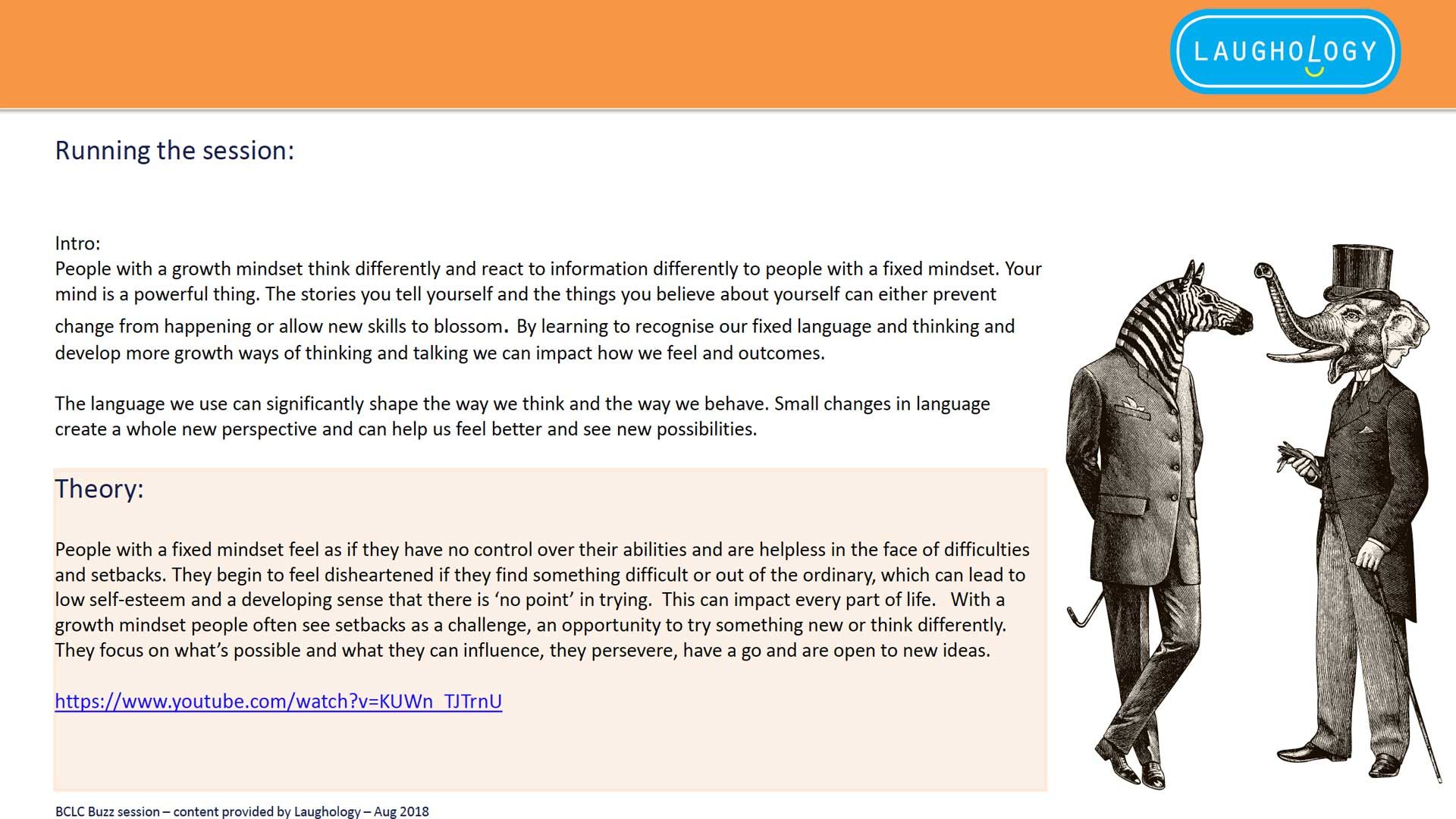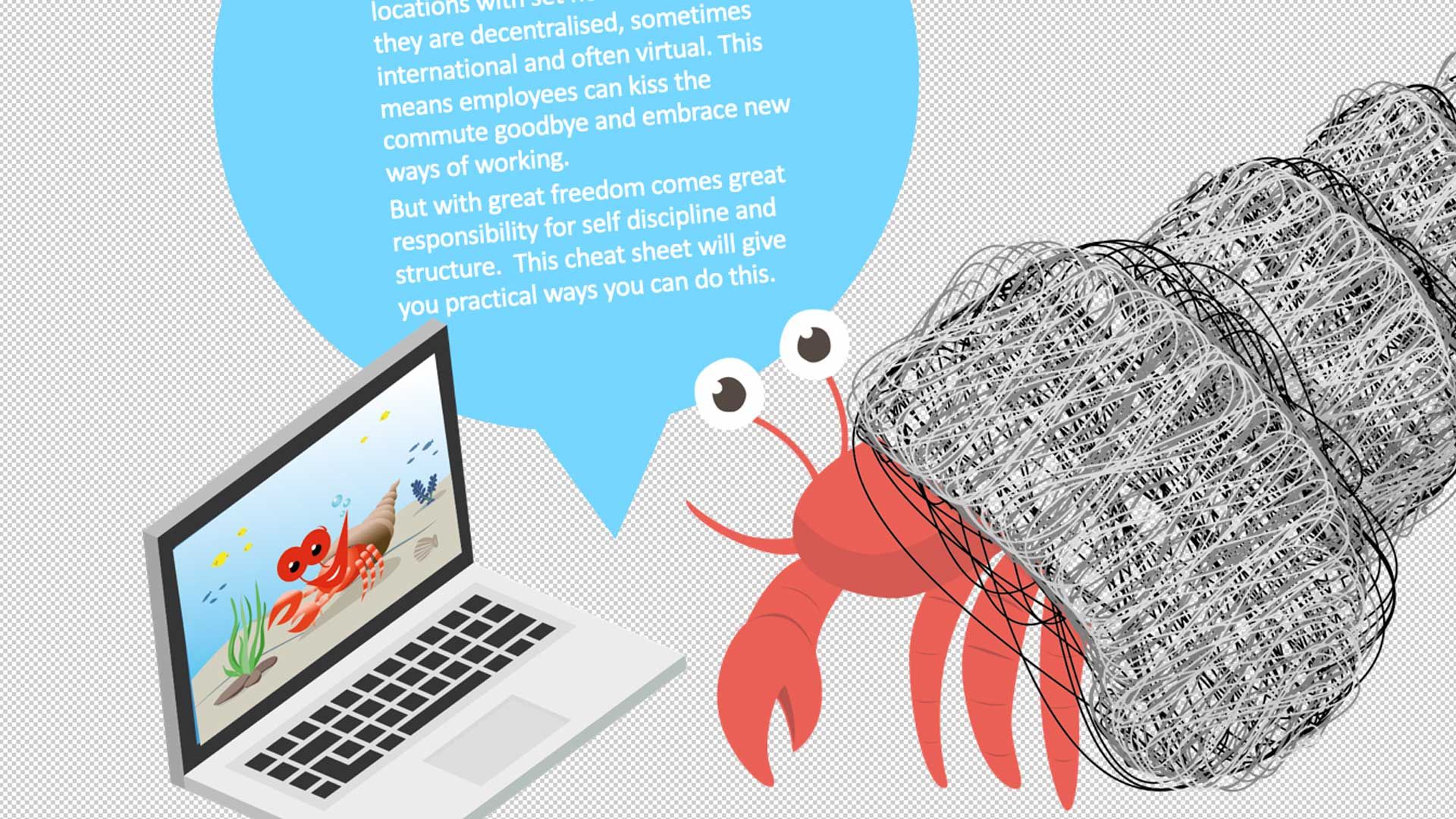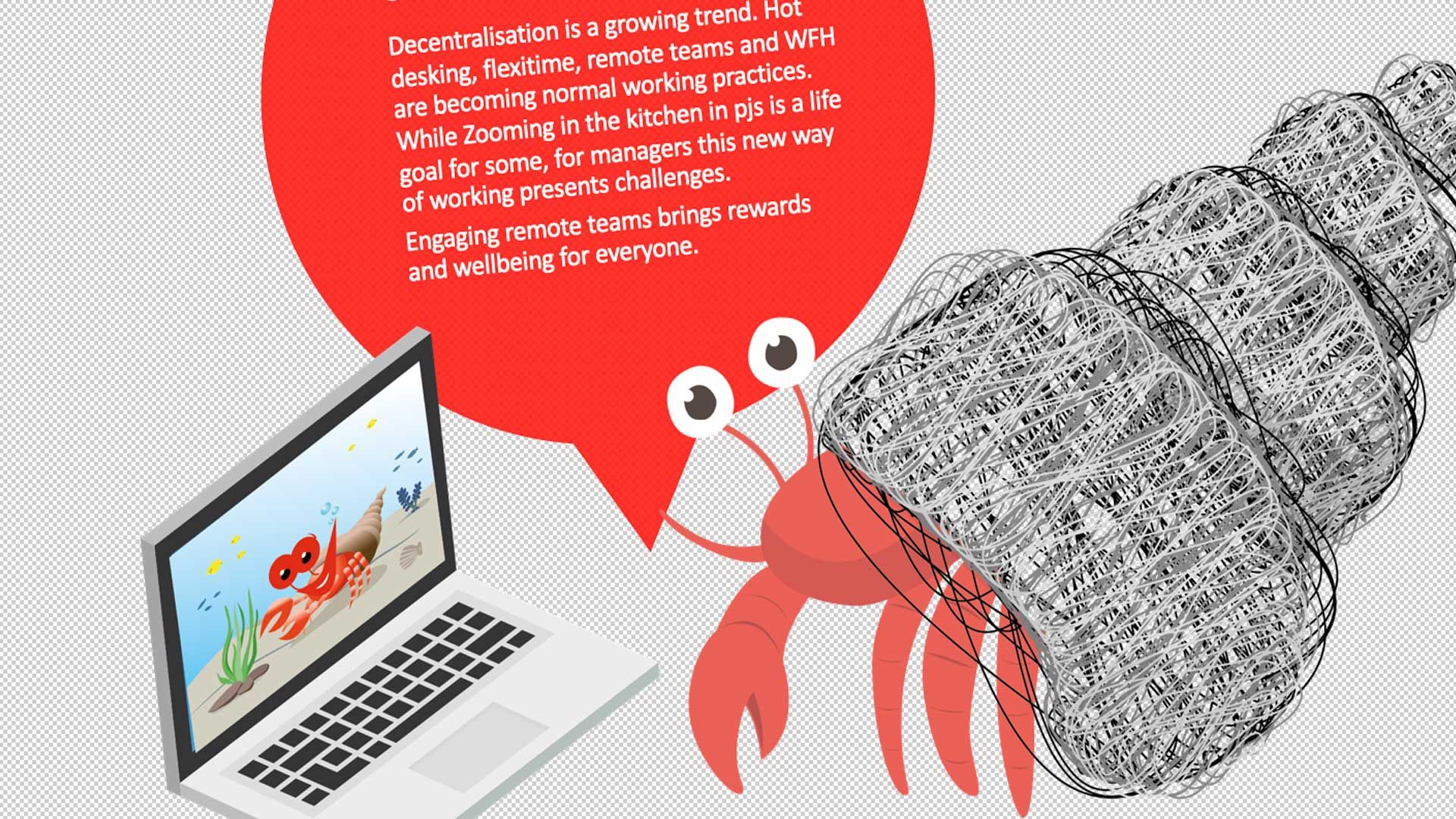WORKING FROM HOME
Connect - Collaborate - Communicate
Introducing our second series of learning bursts. This series is all about working from home and because we like an acronym we’re calling it WFH: Connect - Collaborate - Communicate (okay, the second part isn’t an acronym!).
In this series we’ll share some top tips for managers, teams and individuals to get the best out of WFH, including being productive, combating loneliness and staying connected.
For more modules and topics go to our online learning page.Watch
Stephanie introduces the learning burst series WFH: Connect - Collaborate - Communicate.
Stephanie Davies shares a hack for staying connected.
Read
STAYING CONNECTED
Over a month into lockdown and we’re all settling into different routines. One thing that’s crucial, therefore, is staying connected. But how can we do this to suit everyone’s needs?
Connecting with others isn’t simply a case of transferring meetings from a physical room to a virtual conferencing platform. Consideration must be given to maintaining and growing relationships too. Try:
- Setting up regular team meetings
- Buddying people together in groups/pairs to encourage conversation
- Setting up informal get-togethers – virtual café/pub
- Planning virtual team or group lunches
Thankfully, due to modern technology, there are many options available.
At Laughology, we strongly encourage an excess of laughter, humour and smiling. Not only to help us feel good, but so we work more productively and make better decisions too. Why not consider how to build a bit of laughter into your connections too?
Create boundaries
Some people need frequent interactions. Others, however, may find this too stressful, particularly if they’re juggling childcare or looking after loved ones.
Block out your availability in your calendar or drop an email to let organisers know when you’re free. Be confident to ask for more communication or simply say you’re sorry, but you’re unavailable.
Reflect on how you work too. Ask yourself:
- When am I at my most/least productive?
- When am I at my most creative?
Tailor the type of work you do around those times.
Phil Dobson’s ‘Brain Book’ suggests there are three hours in the day when our mental energy is at its highest. When are yours? How can you capitalise on them?
Don’t lull yourself into the misnomer that working long hours at your computer is productive either. Our capacity to concentrate is limited.
A good, rough guide is to add your age to an extended period of time:
|
Age |
Added Time (approx. minutes) |
|
2 – 5 |
7-8 |
|
5 – 10 |
10 – 15 |
|
Up to 25 |
15 – 20 |
|
25 + |
25 – 40 |
If you want to maximise on time, keep content engaging! For mundane tasks, plan in more frequent breaks and, for a dopamine hit, reward yourself (and one another) upon completion.
Breaking up work into chunks and stepping away from your computer gives your brain time to absorb what you’ve learnt, which helps to improve focus.
A good method for structuring work is the Pomodoro Technique. It helps you manage longer projects, requiring sustained work, in a productive and effective way.
Consider priorities
- What requires immediate attention/is most important?
- What requires many working hours?
Eisenhower’s Principle can help here. List your tasks and put them into these four categories:
- Important and urgent
- Important but not urgent
- Not important but urgent
- Not important, not urgent
Once you have an understanding of what falls into which category, you can plan where to put your focus and when.
Manage your environment
Need to give something your full attention? Limit the distractions. Children don’t have an ‘off’ switch, but WhatsApp, emails, etc. do. Inform colleagues what you’re doing, so they know to call later.
Finally, whilst technology is amazing, manage your screen time to maintain mental health. Step away from your computer at least once every hour for health benefits, e.g. for exercise or to pop outside for fresh air. Time away from your screen reduces eye strain too.
Individual circumstances means everyone’s resilience levels are different. Check up on one another regularly. Be open and honest about your situation.
By doing so, we really can help each other through this.
Do
Buzz Session: Growth Mindset and Staying Connected
Download the Cheat Sheets - Helping Managers and Teams Create the Right Environment
Coming up...
Our next learning burst module for WFH: Connect - Collaborate - Communicate is all about how we create the right environment for work, collaboration and productivity. It will explore simple but effective ways you can create a virtual environment where people feel cared for, connected and able to work to their best, while keeping safe both physically and mentally.


























